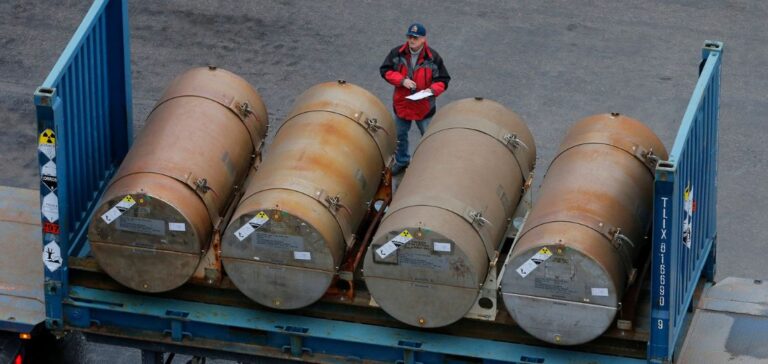In the United States, the recent signing of HR 1042 by President Joe Biden marks a decisive turning point in American energy policy. This legislation, known as the “Prohibiting Russian Uranium Imports Act”, will prohibit the import of Russian uranium until the end of 2040. It aims to strengthen national energy security and reduce American dependence on foreign sources in a tense geopolitical context. Russia’s war in Ukraine is one of the main causes. However, limited exemptions may be granted by the DOE (Department of Energy) for specific, strategic reasons, offering flexibility to players in the nuclear sector. This law, which was introduced against a backdrop of increased international cooperation, was strongly criticized by Russia. Indeed, Kremlin spokesman Dmitry Peskov described the ban as “unfair competition”.
Waiver process and eligibility criteria
The DOE has detailed the conditions for granting waivers for the import of limited quantities of low-enriched uranium (LEU) from Russia. These waivers, valid until January 1, 2028, will be reviewed by the Secretary of Energy in consultation with the Secretaries of State and Commerce. To approve a waiver, they must prove that no viable alternative source of LEU is available to maintain the continued operation of a nuclear reactor or a U.S. nuclear energy company. In addition, imports can be considered to be of national interest if they meet certain strategic criteria.
Criteria of national interest and limited quantities
The authorities invoke thenational interest if the import maintains the viability of an American nuclear company crucial to the U.S. nuclear fuel supply chain. They may also justify importing to support an existing agreement supplying fuel to a nuclear power plant in another country, thus preventing that country from turning to a non-American supplier. The derogations strictly authorize quantities of LEU: 476,536 kg in 2024, gradually decreasing to 459,083 kg in 2027.
Tenex and force majeure notification
According to a Bloomberg report,Russian uranium supplier Tenex, a subsidiary of Rosatom, recently sent a force majeure notice to its US customers, giving them 60 days to obtain a waiver. Tenex has affirmed its intention to meet its contractual commitments, although delivery schedules may require renegotiation for utilities that do not have waivers within the allotted timeframe.
Impact on the US nuclear industry
This new legislation will have a significant impact on the US nuclear industry, forcing companies to look for viable alternatives to Russian uranium. This situation could also stimulate the development of domestic production capacities and strengthen alliances with other international suppliers. The Act aims to secure the supply of nuclear fuel while supporting the competitiveness and resilience of the US energy sector in the face of current geopolitical challenges.
The ban on Russian uranium imports and the waiver mechanisms introduced by the law demonstrate the United States’ commitment to strengthening its energy independence. This measure is part of a broader strategy to secure critical supplies and reduce vulnerability to geopolitical disruptions. Industry players will need to navigate this new regulatory landscape carefully, adapting to new requirements and exploiting opportunities to strengthen the resilience of the nuclear energy supply chain.






















